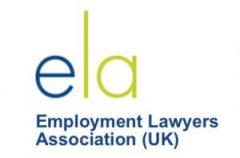Listen to our podcast or read the transcript below.
Employment Solicitor Laura Colebrook talks about Settlement Agreements in our podcast, why and how they are used, and what should be considered when drafting and/or signing one.
What are Settlement Agreements?
A Settlement Agreement, (previously known as a Compromise Agreement), is a voluntary legally binding written contract, where the employment relationship between an employer and employee is terminated on agreed terms.
They are usually offered when the employer is seeking to make the employee’s role redundant, or if there is a risk of legal action and the employer wishes to avoid going to an Employment Tribunal, or where there is a mutual agreement between the employer and the employee for termination.
And so, if you are an employee and your employer asks you to sign a Settlement Agreement to terminate your employment, what should you do?
For a Settlement Agreement to be enforceable it is a legal requirement that an employee receive specialist legal advice before signing. This advice should be from an independent solicitor, chosen by the employee, which is normally paid for by the employer in terms of a financial contribution (which is usually outlined in the Settlement Agreement itself).
The employee therefore should receive advice on the terms of the Settlement Agreement and the effect of signing. Where appropriate the solicitor may be also able to negotiate terms so that the parties can reach an agreement that they are happy to sign.
How do Settlement Agreements work?
Should an employer need to terminate an employee’s employment, using a Settlement Agreement it enables them to offer an employee a sum of money to facilitate an agreed termination of their employment. This in turn helps protect their business against future claims as the employee will contract to refrain from issuing claims listed in the Settlement Agreement, such as unfair dismissal.
In essence, Settlement Agreements financially compensate the employee whilst limiting the employer’s liability so that a line is drawn under the end of the employment relationship. Effectively, a “clean break” is being achieved.
It is important that both sides understand what their signing, isn’t it?
Yes, both the employer and employee need to clearly understand the terms of the Settlement Agreement and what they are agreeing to.
The employee obviously also needs to understand the ramifications of signing a Settlement Agreement and a solicitor will be able to offer advice on whether the settlement proposed is reasonable in light of the background to the termination of employment and can negotiate the terms and financial settlement on behalf of the employee. Your solicitor should refer to your contract of employment to calculate the correct notice and see if the compensatory sum covers an appropriate amount and if any bonuses are due.
How is a settlement amount calculated?
So, it varies. The amount offered in a Settlement Agreement will vary depending on each situation. The most significant part of the payment is the termination payment which is the compensation element for the employee’s loss of employment.
When signing a Settlement Agreement, employees will forgo the right to bring a claim against their employer, so this sum will depend on the nature of the situation and the level of incentive that the employer is prepared to offer as an incentive for their employee to sign the Settlement Agreement.
Some Settlement Agreements contain covenants that restrict an employee from working with certain employers for an agreed period. If that is the case, should the compensation figure reflect any potential loss of income?
Yes, absolutely and if these restrictive covenants mean that they are unable to work in their industry for a time, then the compensation figure should reflect the loss of income they would experience. And also it is possible that a solicitor may be able to negotiate down restrictive covenants, say for example, if a restrictive covenant prevented an employee for working for a competitor for 6 months, the solicitor may be able to get this reduced to 3 months, or in the best possible scenario, removed in its entirety.
If an employee is being asked to sign a Settlement Agreement, how long do they have to decide if they wish to agree to it?
According to Acas guidance, employers should give employees a minimum of 10 calendar days to decide whether they want to accept a Settlement Agreement, but quite often an employer can put pressure on the employee to sign before then, in which case a solicitor can see if they can obtain an extension to allow reasonable time to consider the contents of the agreement.
What happens if an employee refuses to sign a Settlement Agreement?
Settlement Agreements are not compulsory so if an employee is not satisfied with the terms, compensation, or indeed anything else about the agreement they do not have to sign. However, refusing to sign could lead to an employee’s role being made redundant if it were in a redundancy situation, where by the employee may only receive statutory redundancy amount compared to an enhanced figure which may have been offered in the Settlement Agreement.
Obviously having advice from a solicitor is crucial, because they can help negotiate better terms for you, check that the terms that you are signing are fair and potentially give you an uplift in compensation.
If you are an employee who has been asked to sign a Settlement Agreement, or an employer who is looking to draft one, please contact Laura Colebrook in our Employment team who can advise you.






